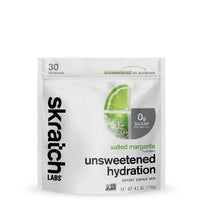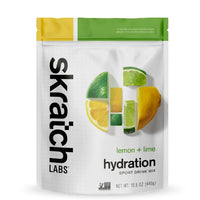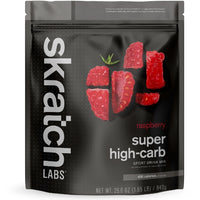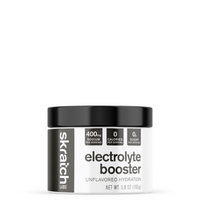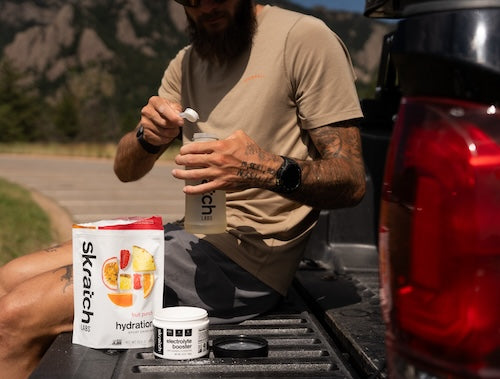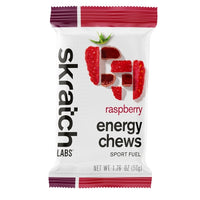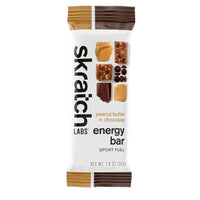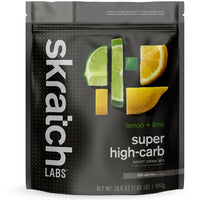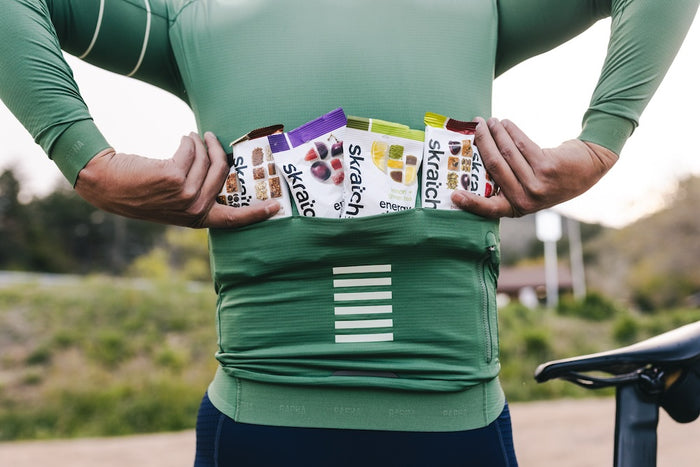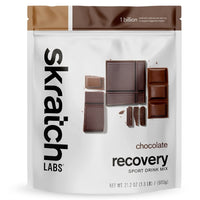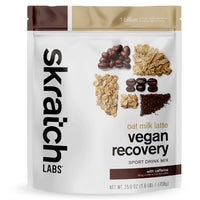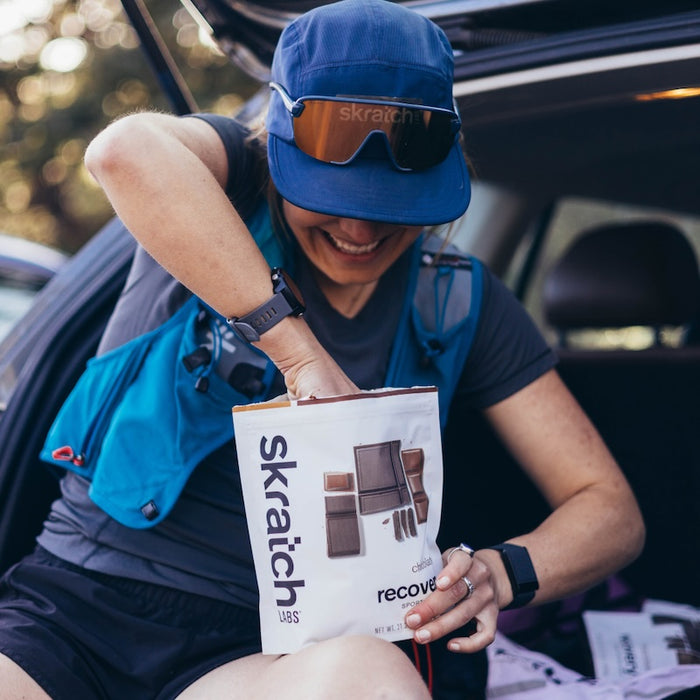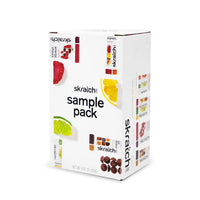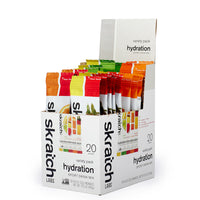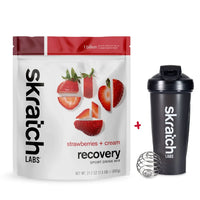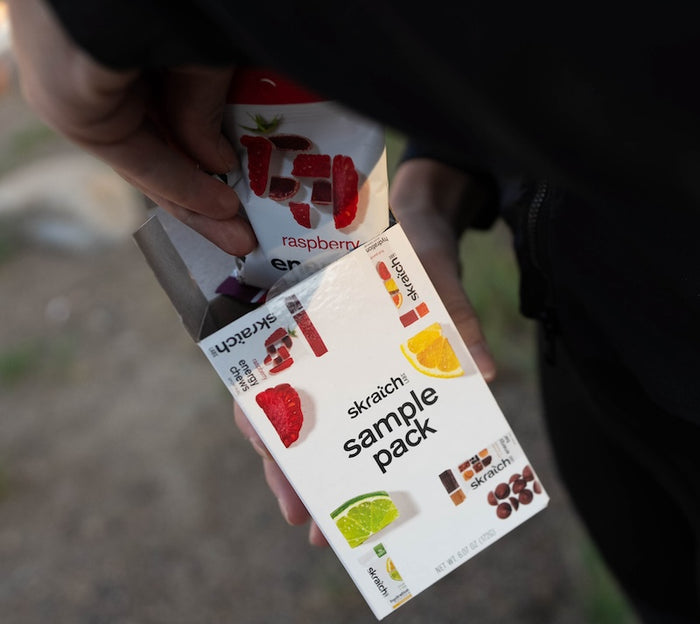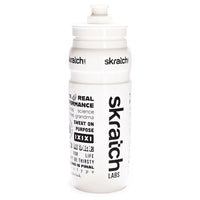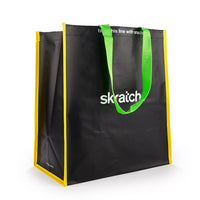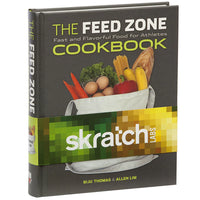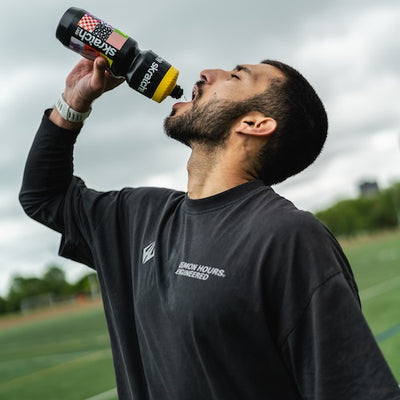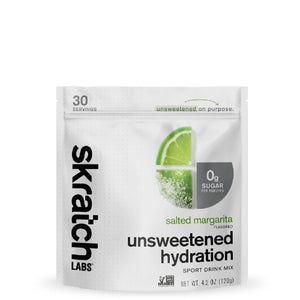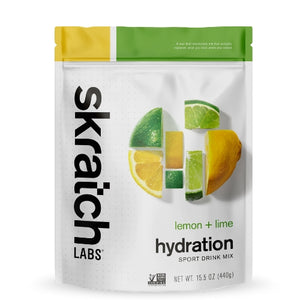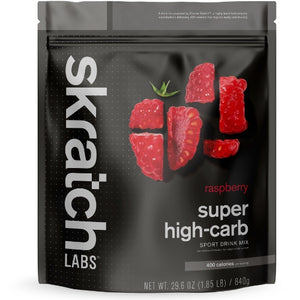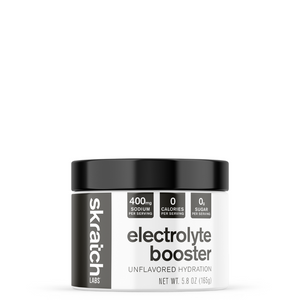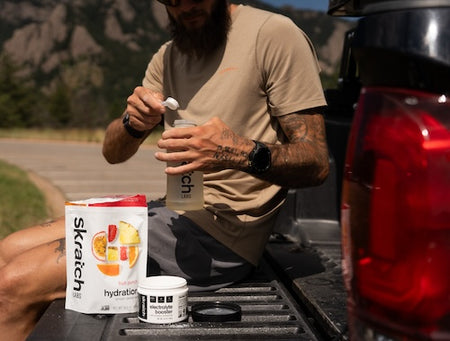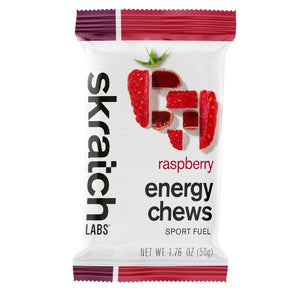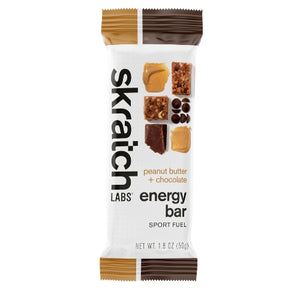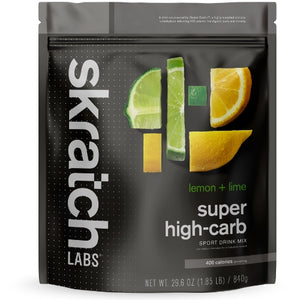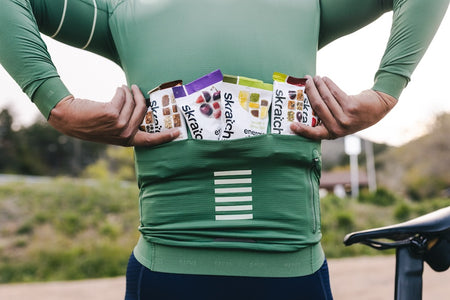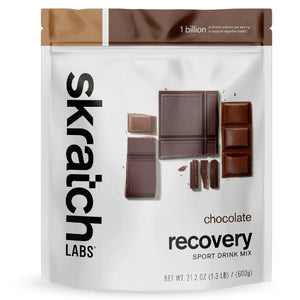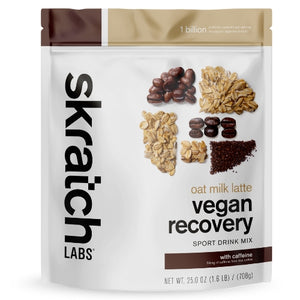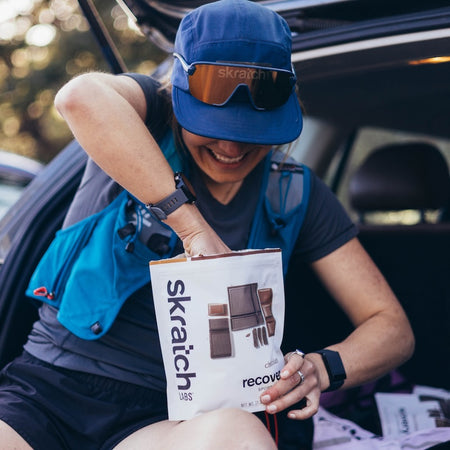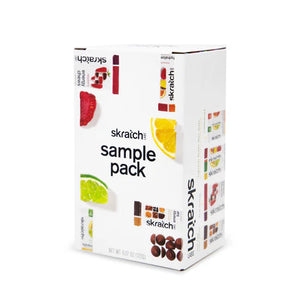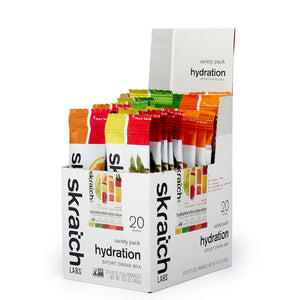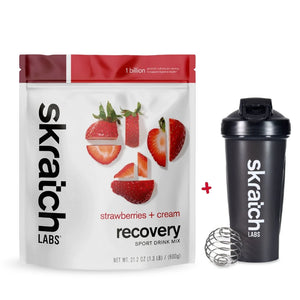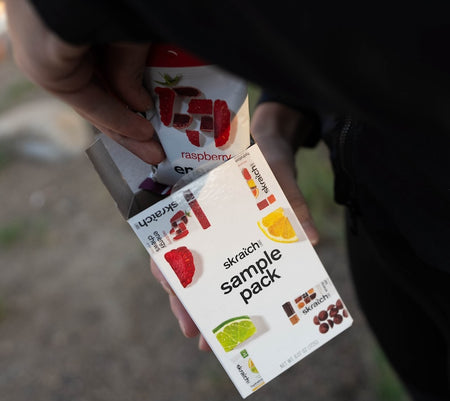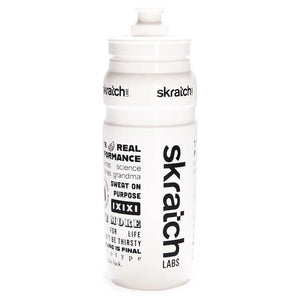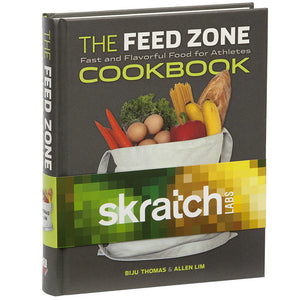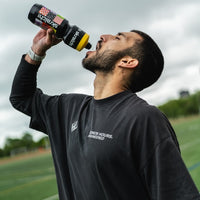When it comes to hydration, many athletes treat it like a simple equation: lose water → drink water. But that oversimplification can sabotage performance, endurance, and safety, especially during intense efforts, heat, or long durations. The truth is, hydration isn’t just about replacing water. It’s about replacing what you lose in sweat particularly sodium.
Let’s break down what’s actually happening inside your body, and how to hydrate smarter.
What Is Sweat, Really?
It’s a mix of water and electrolytes, and about 90% of the electrolytes you lose in sweat is sodium chloride (salt). Of those two components, sodium plays the most critical role in your body's performance.
So when you only replace water, you're leaving your body depleted of something essential — and possibly creating even bigger problems.
When sodium levels drop:
- Your nervous system can misfire, slowing down reaction time and coordination.
- Your blood volume decreases, making your heart work harder.
- Your gut struggles to absorb fluids and nutrients.
- Muscle contraction weakens, and cramping risk increases.
At a certain point, the body’s delicate internal balance starts falling apart.
Thirst Is Smarter Than You Think
Here’s the surprising part: your body uses sodium concentration — not just water volume — to trigger thirst.
When you sweat, you typically lose more water than sodium, so your blood sodium concentration goes up, and your brain tells you to drink. As you hydrate, sodium concentration decreases and you stop feeling thirsty. It’s a beautifully designed system... unless you mess with it (or a medical ailment messes with it).
If you ignore that signal and keep guzzling plain water, you dilute your blood sodium levels. This throws off your thirst mechanism and can lead to hyponatremia, a condition that ranges from dizziness and fatigue to, in severe cases, seizures and death.
Drink to Thirst. But With Sodium.
Drinking when you're thirsty is a good guide — if your drink contains sodium.
Otherwise, thirst might steer you wrong.
This is especially true in hot, sweaty, or high-output scenarios. Your thirst cues are trying to regulate sodium, not replace all the water you’ve lost. That means it’s normal — and safer — to lose a little body water than to overhydrate without replacing sodium.
In mild conditions or short efforts? Water might be fine. In heat, altitude, or long training sessions? Water alone won’t cut it.
*Certain conditions and ailments can alter thirst cues.
Sodium Loss Is Highly Individual
The amount of sodium in your sweat is genetically determined — largely by the number of sodium “reabsorption doors” in your sweat glands (related to your CFTR gene).
That means:
- Some people lose 200–400 mg/L of sodium in sweat.
- Others lose 1,000–2,000+ mg/L.
- People with cystic fibrosis can lose up to 3,500 mg/L — the same salinity as blood.
So, while averages matter, your sweat rate and sweat sodium concentration may vary drastically from your training buddy’s.
Why a Sweat Test Helps
Skratch Athlete Abby Levene learned this the hard way. After bonking during her first 50k despite drinking plenty of water, she got her sweat tested at Skratch Labs. Her sodium concentration? 900 mg/L.
But her sweat volume was huge, meaning she lost more sodium than she realized. Her takeaway?
“I can’t really impress upon you how drastic of a difference being properly salted makes.”
The test was simple — a small patch on her forearm stimulated by Pilocarpine triggered localized sweating. That sweat was collected and analyzed, showing how much sodium she lost per liter. The test helped her match her hydration more precisely.
Can’t Get a Sweat Test? Here’s a DIY Trick
Weigh yourself before and after a workout.
- 1 lb of bodyweight lost = ~16 oz of fluid
- Add in how much you drank to estimate total sweat loss
- If you lost more than 3% of your body weight, you’re under-replacing fluids
- If you gained weight during your workout, you’re likely overhydrating
If you were drinking to thirst and still lost a lot of water weight? You probably need more sodium to trigger thirst earlier and match actual sweat loss.
Why Skratch Hydration System Products Work
The average sweat sodium concentration is ~800–900 mg/L — Skratch Hydration System Products are designed to closely match that range.
We use sodium citrate rather than table salt (sodium chloride), which provides the necessary sodium without the excess chloride. This choice also supports a gentler flavor and better acid-buffering during intense efforts.
If you’re a high sodium-sweater? You can customize your intake with additional Skratch Hydration System Products to better match your personal needs.
Remember…
To hydrate well, you need to focus on two things:
- Water balance — measured with the scale pre/post workout
- Sodium balance — guided by thirst and sweat sodium concentration
If you’re peeing constantly but still dehydrated? You’re likely drinking too much water without enough sodium
If you’re gaining weight during workouts? You may be overdoing sodium without enough water.
References
- Skratch Labs Infographic: “Why Is It Important to Replace Sodium Lost in Sweat?”
- Shirreffs, S.M. & Sawka, M.N. (2011). Fluid and electrolyte needs for training, competition, and recovery. Journal of Sports Sciences, 29(S1), S39–S46.
- Greenleaf, J.E. (1992). Problem: thirst, drinking behavior, and involuntary dehydration. Medicine and Science in Sports and Exercise, 24(6), 645–656.
- Convertino, V.A. (1997). Blood volume: its adaptation to endurance training. Medicine and Science in Sports and Exercise, 29(10), 1–7.
- Gisolfi, C.V., Summers, R.W., Schedl, H.P., Bleiler, T.L., & Oppliger, R.A. (1990). Human intestinal water absorption: direct vs. indirect measurements. Journal of Applied Physiology, 69(3), 914–919.
- Bergeron, M.F. (2003). Muscle cramps during exercise—is it fatigue or electrolyte deficit? Current Sports Medicine Reports, 2(4), 239–243.
- McKinley, M.J. & Johnson, A.K. (2004). The physiological regulation of thirst and fluid intake. News in Physiological Sciences, 19, 1–6.
- Hew-Butler, T. et al. (2015). Statement of the Third International Exercise-Associated Hyponatremia Consensus Development Conference. Clinical Journal of Sport Medicine, 25(4), 303–320.
- Noakes, T.D. (2007). Drinking guidelines for exercise: what evidence is there that athletes should drink “as much as tolerable,” “to replace all fluid lost,” or “ad libitum”? Journal of Sports Sciences, 25(7), 781–796.
- Casa, D.J. et al. (2000). National Athletic Trainers’ Association position statement: fluid replacement for athletes. Journal of Athletic Training, 35(2), 212–224.
- Allen Lim, PhD – Transcribed content from Skratch Labs “Salt Marks and Blood Sodium 101” video
- Farrell, P.M. (2008). The prevalence of cystic fibrosis. Journal of Pediatrics, 153(2), S4–S14.
- Abbey Levene. “Why I Got My Sweat Tested and What I Learned.” Skratch Labs Blog (2017, updated 2024)
- Sawka, M.N. et al. (2007). American College of Sports Medicine position stand: Exercise and fluid replacement. Medicine and Science in Sports and Exercise, 39(2), 377–390.
